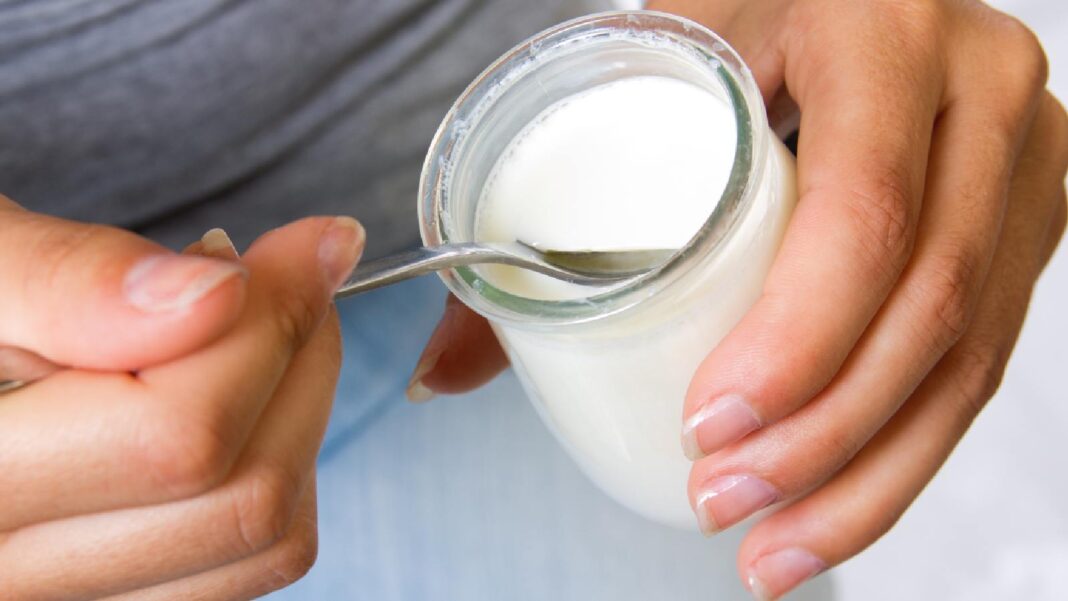Probiotics found in yogurt and other fermented foods may be good for your gut health. But can probiotics promote hair growth?
It is no secret that eating foods rich in protein or applying hair care products with this essential nutrient is good for your hair. After all, a majority of hair is made up of a protein called keratin. But if you want to boost hair growth, you need to do more than relying on protein. Right from following a hair care routine according to your hair type to eating foods full of essential nutrients and reducing stress, the to-do list for healthy hair is long. Add probiotics to it, as they may be good for your hair. Probiotics are mostly known for their benefits for the gut. But studies reveal probiotics may help to promote hair growth as well!
What are probiotics?
Probiotics, found in yogurt and other fermented foods, are live microorganisms. They may offer health benefits when consumed or applied to the body, as per the US National Center for Complementary and Integrative Health. They are typically bacteria or yeast, and are often referred to as “good” or “friendly” bacteria. That’s because they help maintain a healthy balance in the gut by outcompeting harmful bacteria and supporting the digestive system. Apart from yogurt, they are also found in fermented foods like kefir, sauerkraut, kimchi as well as in dietary supplements.

How do probiotics help with hair growth?
Probiotics can help in alleviating gastrointestinal problems and improve overall health, according to a research published in Cureus. They can also help with hair growth. During a study published in the Functional Foods in Health and Disease journal, participants who had probiotic supplements twice every day for 12 weeks saw beneficial effects on hair growth. Potential benefits of probiotics in improving hair health, particularly in terms of controlling dandruff and hair growth, were noticed during a study published in Heliyon.
“Probiotics may support hair growth through several mechanisms, primarily by promoting a healthy internal and external environment that favours hair health,” says cosmetologist and skin expert Dr Jatin Mittal. Here’s how they can contribute:
1. Balancing the gut microbiome
A healthy gut microbiome can aid in the digestion and absorption of essential nutrients like biotin, vitamin B12, vitamin D, and minerals such as zinc, and iron that are crucial for hair growth. When the gut gets balanced, these nutrients are more readily absorbed and delivered to the hair follicles, supporting stronger and faster hair growth.
2. Reducing stress
The gut and brain of a person are linked through the gut-brain axis. “Stress may have a role in hair loss, particularly in conditions like alopecia areata,” says Dr Mittal. Probiotics can help regulate the gut-brain axis, which may reduce stress levels and, in turn, minimise hair loss related to stress.
3. Enhancing scalp health
Probiotics can help reduce inflammation on the scalp, which is often linked to conditions like dandruff, seborrheic dermatitis, and other scalp issues that can inhibit hair growth. A healthy, less inflamed scalp provides a better environment for hair follicles.
4. Immune system support
Some forms of hair loss, such as alopecia areata, are linked to autoimmune reactions where the body’s immune system attacks hair follicles by mistake. “Probiotics can boost overall immune function, potentially reducing the likelihood of such autoimmune reactions,” says the expert. By supporting the immune system, probiotics may help protect hair follicles from environmental damage and oxidative stress, which can come in the way of hair growth.
How to use probiotics for hair growth?
Using probiotics for hair growth can be approached in a few different ways, including through diet, supplements, and topical application. Here’s how you can incorporate probiotics into your hair care routine:
1. Dietary sources
Have fermented foods that are naturally full of probiotics. You can go for yogurt, preferably unsweetened and containing live cultures, kefir (a fermented milk drink), sauerkraut (fermented cabbage), kimchi (fermented vegetables), miso (fermented soybean paste), and tempeh (fermented soybeans).

2. Probiotic supplements
If you want to go beyond food, you can take a probiotic supplement after consulting with your doctor. “Look for a supplement that has variety of strains, including Lactobacillus, commonly associated with gut health and overall well-being,” suggests the expert. But stick to the recommended dosage on the supplement packaging or follow what your doctor says.
3. Topical probiotic treatments
Some of the hair care products like shampoos, and conditioners have probiotics. “These products are meant to balance the scalp microbiome and take care of issues like dandruff and inflammation, and so, can support hair growth,” says Dr Mittal. You can also create a simple hair mask using probiotic-rich ingredients like yogurt. Take plain, unsweetened yogurt, apply it directly to your scalp and hair, massage gently then leave it on for about 30 minutes. Rinse if off with water then use mild shampoo and conditioner. This DIY mask can be used once or twice a week to promote scalp health and support hair growth.
What are the side effects of using probiotics for hair growth?
Probiotics are safe in general, but there are potential side effects –
- When used topically, probiotics may cause mild irritation or allergic reactions, especially for people with sensitive skin.
- When consumed, some people may experience digestive issues like gas or diarrhea, particularly when first introducing probiotics.
Probiotics may promote hair growth, but they should be part of a comprehensive approach that includes a balanced diet, proper hair care, stress management, and, when necessary, medical treatment for underlying conditions.









